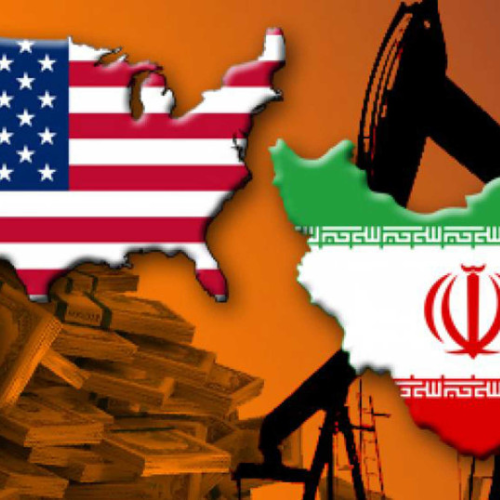President Trump has launched a second round of sanctions on Iran with the goal of cutting the country’s oil exports to zero, particularly to China, its biggest customer. This “maximum pressure” campaign is similar to the tactics used previously, but it now targets more than just Iran. Trump’s new sanctions will focus on Iranian shipping companies, oil traders, and even ports in countries like China and Malaysia that help Iran move its oil secretly.
The sanctions will attempt to stop tankers, ships, and businesses that engage in trade with Iran by labeling their vessels and operations as “sanctioned.” The idea is to freeze their assets and make it harder for them to do business, forcing them out of the global market. The hope is that this pressure will push Iran to the negotiating table for a nuclear deal, which could eventually reintegrate Iranian oil into the international market.
Impact on Tanker Shipping and Freight Costs
Tanker Fleets and Increased Costs
One of the biggest impacts of these sanctions will be felt in the shipping industry, especially for those involved in moving Iranian oil. Iran typically uses older, unsanctioned vessels, referred to as the “dark fleet,” to transport its oil. These ships are used to hide their identities and bypass the sanctions imposed by the US. However, with the new sanctions, it will become increasingly difficult for these vessels to operate without attracting attention. The US is expected to target these ships, leading to higher risks of being detained or punished. This will create big problems for anyone trying to move Iranian crude oil.
Bold Agreement: Russia and Iran Forge Deeper Ties Against Western Pressures
The new sanctions will also make shipping Iranian oil to China more expensive. Ports in China don’t want to risk getting caught helping Iran, so they are likely to start using “clean” vessels—ships that aren’t on the US sanction list. With more demand for these clean vessels, the cost of shipping Iranian oil will go up. This means that the freight costs for shipping Iranian oil will increase, putting more pressure on buyers in China. In turn, these buyers may ask for bigger discounts from Iran, which could hurt the country’s economy.
Deceptive Tactics and Changing Shipping Routes
To get around the sanctions, Iran is likely to use deceptive tactics, such as turning off tracking systems on its ships or discharging oil in smaller, less noticeable ports. This makes it more difficult for authorities to track where the oil is going and who is involved in the trade. With the sanctions targeting Iran’s use of specific ports, it will also be harder for the country to use ports in Malaysia, China, and other countries for transferring oil between ships. These ports are critical to Iran’s ability to move oil without being detected.
Iran’s reliance on these deceptive tactics means that the sanctions could cause even more complexity in the shipping process, and the risk of getting caught will only increase.
Expanding Sanctions on Iran’s Oil Export Fleet
The US is not only focusing on Iranian shipping companies but is also targeting the entire network that helps Iran send oil to countries like China. At present, about 41% of the ships involved in Iran’s oil trade are sanctioned by the US. This leaves a large portion of the fleet still untouched, meaning that the US has room to expand its sanctions. As the US targets more vessels in Iran’s oil export fleet, it will become even harder for Iran to continue moving its oil across borders.
Iranian Oil Tycoon Used EU and Dominican Passports to Outsmart Sanctions
Many of the ships used to transport Iranian oil are old and difficult to track, making enforcement of these sanctions challenging. These vessels are not only a risk for those involved in the trade but are also environmentally hazardous. If the US succeeds in expanding sanctions, it could block these vessels from continuing to operate, making it harder for Iran to get its oil to market. However, these ships are so outdated that they might be too risky to reintegrate into the mainstream fleet even if a nuclear deal is reached in the future.
Secondary Sanctions and Global Impact
Secondary sanctions could also become a significant part of this effort. These sanctions would target countries or companies that continue to do business with Iran. For example, China, a major buyer of Iranian oil, could face new sanctions if it doesn’t stop purchasing oil from Iran. In the past, China has been able to avoid sanctions, but the US is now considering making it harder for countries like China to maintain their trade with Iran.
The new sanctions will add a fresh layer of disruption to the shipping of Iranian oil. They will raise freight costs, lead to more deceptive shipping practices, and create uncertainty in the global oil market. The pressure on shipping companies, oil traders, and ports will increase as the US works to cut Iran’s oil exports to zero. The result will be a more complicated global oil trade with greater risks for those involved in transporting Iranian crude oil.


